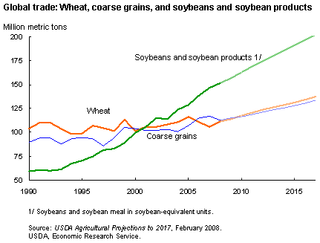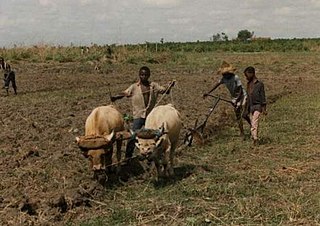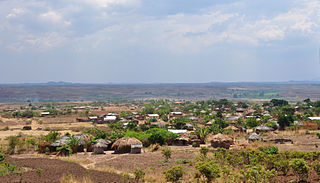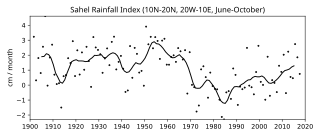 W
WWorld food prices increased dramatically in 2007 and the first and second quarter of 2008, creating a global crisis and causing political and economic instability and social unrest in both poor and developed nations. Although the media spotlight focused on the riots that ensued in the face of high prices, the ongoing crisis of food insecurity had been years in the making. Systemic causes for the worldwide increases in food prices continue to be the subject of debate. After peaking in the second quarter of 2008, prices fell dramatically during the late-2000s recession but increased during late 2009 and 2010, reaching new heights in 2011 and 2012 at a level slightly higher than the level reached in 2008. Over the next years, prices fell, reaching a low in March 2016 with the deflated Food and Agriculture Organization (FAO) food price index close to pre-crisis level of 2006. As of May 2017 they have not reached crisis levels again, despite prices increasing.
 W
WAfrica Finance Corporation (AFC) is a pan-African Multilateral Development Financial Institution established in 2007 by sovereign African states to provide pragmatic solutions to Africa's infrastructure deficit and challenging operating environment. The Corporation bridges the infrastructure investment gap through the provision of debt and equity finance, project development, technical and financial advisory services.
 W
WThe African Free Trade Zone (AFTZ) is a free trade zone announced at the EAC-SADC-COMESA Summit on 22 October 2008 by the heads of Southern African Development Community (SADC), the Common Market for Eastern and Southern Africa (COMESA) and the East African Community (EAC). The African Free Trade Zone is also referred to as the African Free Trade Area in some official documents and press releases.
 W
WThe African Tax Administration Forum (ATAF) is an international organisation which provides a platform for cooperation among African tax authorities. First conceived during a meeting of 30 African tax commissioners with representatives of the Organisation for Economic Co-operation and Development in August 2008, it was launched in November 2009 in Kampala, Uganda. Through mutual cooperation between member states, ATAF works towards increasing the level of voluntary tax compliance whilst combating tax evasion and avoidance. ATAF is supported by a group of donors including the UK's Department for International Development, the Norwegian Agency for Development Cooperation, the African Development Bank, the Deutsche Gesellschaft für Internationale Zusammenarbeit, Irish Aid, the Ministry for Foreign Affairs (Finland), the Ministry of Foreign Affairs (Netherlands), the OECD, and the Swiss State Secretariat for Economic Affairs. It collaborates with African regional economic organisations, the Commonwealth Association of Tax Administrations, the Inter-American Center of Tax Administrations, the Centre de Rencontres et d'Etudes des Dirigeants des Administrations Fiscales, the Intra-European Organisation of Tax Administrations, and the International Centre for Tax and Development.
 W
WChild labour in Africa is generally defined based on two factors: type of work and minimum appropriate age of the work. If a child is involved in an activity that is harmful to his/her physical and mental development, he/she is generally considered as a child labourer. That is, Any work that is mentally, physically, socially or morally dangerous and harmful to children, and interferes with their schooling by depriving them of the opportunity to attend school or requiring them to attempt to combine school attendance with excessively long and heavy work. Appropriate minimum age for each work depends on the effects of the work on the physical health and mental development of children. ILO Convention No. 138 suggests the following minimum age for admission to employment under which, if a child works, he/she is considered as a child laborer: 18 years old for hazardous works, and 13–15 years old for light works, although 12–14 years old may be permitted for light works under strict conditions in very poor countries. Another definition proposed by ILO’s Statistical Information and Monitoring Program on Child Labor (SIMPOC) defines a child as a child labourer if he/she is involved in an economic activity, and is under 12 years old and works one or more hours per week, or is 14 years old or under and works at least 14 hours per week, or is 14 years old or under and works at least one hour per week in activities that are hazardous, or is 17 or under and works in an “unconditional worst form of child labor”.
 W
WThe earliest humans were hunter gatherers who were living in small, family groupings. Even then there was considerable trade that could cover long distances. Archaeologists have found that evidence of trade in luxury items like precious metals and shells across the entirety of the continent.
 W
WMobile technology in Africa is a fast growing market. Nowhere is the effect more dramatic than in Africa, where mobile technology often represents the first modern infrastructure of any kind. Only 10% of Internet users are in Africa. However, 50% of Africans have mobile phones and their penetration is expanding rapidly. This means that mobile technology is the largest platform in Africa, and can access a wide range of income groups. AppsAfrica reports Mobile App downloads will reach 98 billion which will have a huge benefit for mobile app developers in Africa
 W
WMobile technology in Africa is a fast growing market. Nowhere is the effect more dramatic than in Africa, where mobile technology often represents the first modern infrastructure of any kind. Only 10% of Internet users are in Africa. However, 50% of Africans have mobile phones and their penetration is expanding rapidly. This means that mobile technology is the largest platform in Africa, and can access a wide range of income groups. AppsAfrica reports Mobile App downloads will reach 98 billion which will have a huge benefit for mobile app developers in Africa
 W
WThe Organisation of African, Caribbean and Pacific States (OACPS) is a group of countries in Africa, the Caribbean, and the Pacific that was created by the Georgetown Agreement in 1975. Formerly known as African, Caribbean and Pacific Group of States (ACP), the organisation's main objectives are sustainable development and poverty reduction within its member states, as well as their greater integration into the world's economy. All of the member states, except Cuba, are signatories to the Cotonou Agreement with the European Union.
 W
WThe Sahel has long experienced a series of historic droughts, dating back to at least the 17th century. The Sahel region is a climate zone sandwiched between the Sudanian Savanna to the south and the Sahara desert to the north, across West and Central Africa. While the frequency of drought in the region is thought to have increased from the end of the 19th century, three long droughts have had dramatic environmental and societal effects upon the Sahel nations. Famine followed severe droughts in the 1910s, the 1940s, and the 1960s, 1970s and 1980s, although a partial recovery occurred from 1975-80. The most recent drought occurred in 2012.